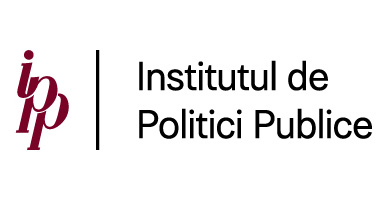Mission
The mission of Institute for Public Policy is to be a leading source of independent analysis and open debates that will contribute to the development of the Republic of Moldova in the spirit of a democratic, participatory and pluralist society.
To pursue its mission, the Institute for Public Policy:
- Engages government, civil society and academia in open debates about significant issues for the well-being of Moldovan society;
- Produces independent and rigorous analysis of critical challenges and opportunities for the Republic of Moldova;
- Offers new ideas to decision-makers on how these could be tackled from the near- to the long-term.
The core types of activities of IPP are:
– conducting public policy research and public opinion polls;
– providing policy consulting and policy advice to national and international decision makers and stakeholders;
– organizing forums for discussions on policy options;
– providing workshops/trainings for members of civil society and decision makers.
Since its establishment in the year 2000, the Institute for Public Policy (IPP) has evolved to become a think-tank with influence in Moldovan society and among stakeholders in civil society, politics and public administration. Over the years IPP has tried to capture the main issues faced by the Republic of Moldova and to channel its knowledge and expertise to provide and promote sustainable policy solutions. Currently, IPP is a cohesive and compact think-tank, with an extensive expertise in several key areas important for the development of the Republic of Moldova: education, conflict resolution, security sector, local governance, and EU integration. IPP is a member of PASOS (Policy Association for an Open Society), National Council for Participation (a body comprised from CSOs advising Moldovan government), and has an established network of partnerships with professionals and CSOs at local, national and regional level.
At present, the activity of IPP is structured under three Research Programs:
– Educational Policies;
– Conflict Management in the Black Sea Region;
– Law Enforcement and Security Sector Reforms.
The activities undertaken by the Institute for Public Policy in the field of education are focused on building an educational system able to ensure to a full extent universal access to quality education, as the basis for establishing in the Republic of Moldova a knowledge society. According to 2013 Global Go Think Tank Index Report, the Institute for Public Policy was ranked as a Top Education Policy Think Tank. In the field of security sector reforms, IPP’s activities are based on the assumption that the Republic of Moldova needs to build an effective security system, according to democratic rules and principles, which will ensure fully personal security, community security and the security of the state. IPP’s activities in the field of conflict management are aimed at providing an independent analysis of the conflicts in the region to the Moldovan society and political class. Conflict management Program focuses on the dynamic of the Transnistrian conflict and combats stereotypes, which impede understanding of the causes of the conflict and identification of viable solutions. Over the years, IPP has worked also in other policy areas, which allowed establishing a wide network of collaborators.
The most popular and enduring product of IPP is the Barometer of Public Opinion (a nationwide sociological research, performed twice a year since 2001), which is highly recognized among citizens and the expert community interested in the development in the Republic of Moldova. IPP participated in conceptualizing the optimization of the school network in the Republic of Moldova, contributed to the Concept of Reintegration of the Republic of Moldova and participated in the development of the National Security Concept and National Security Strategy. IPP is a hub, as well as a resource center, for foreign experts and academia that are performing research on the Republic of Moldova.
However, in a more and more competitive non-governmental environment in Moldova, in some cases IPP has been slow to enhance its expertise according to the permanently changing policy context, derived from the dynamic EU-Moldova partnership, and sometimes is lagging behind in adapting and strengthening its public outreach capacity. In addition, the internal governance mechanisms that suited IPP at its initial stage of development, are not longer guaranteeing a sustainable development of the organization.
There is an urgent necessity to rethink the role, scope and future development of the IPP in order to maintain its capacity to provide substantial inputs for civil society participation to the development of the Republic of Moldova. A comprehensive organizational development process is needed in order to enhance the quality of research products, improve communication and advocacy capacity and revise internal development and governance procedures.
IPP’s organizational development objectives over the next three years:
- Ensure sustainable development and flexibility to changes in policy environment, in terms of establishing new research programs and hiring additional personnel;
- Increase the quality of research and strengthen the capacity to influence debate at national and, in the future, on EU level;
- Implement a new structure for communication activities that ensures greater visibility and better integrates online communications.

 Română
Română